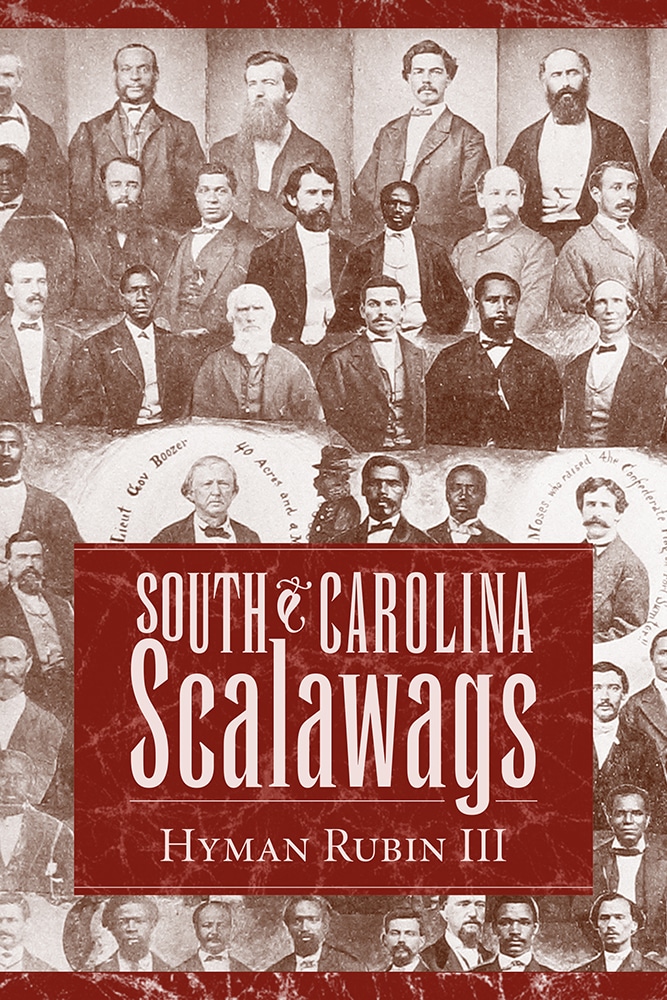Black History Month Sale: 40% off all books, plus FREE SHIPPING on all U.S. orders over $50 | Use code JBHM26

Size: 6 x 9
Pages: 234
Illustrations: 19 b&w halftones
Hyman Rubin III
The inclusion of this book in the Open Carolina collection is made possible by the generous funding of
"Based upon meticulous research, Rubin's analysis of white Republicanism in South Carolina goes far beyond any previous study. His commentary on Republican motives, fiscal policy, ethnic views, patronage, corruption, and factional in-party fighting helps explain not only the ultimate failure but also the significant successes of the brief Republican tenure. South Carolina Scalawags has value not only for understanding Redemption, but for recognizing the changing nature of the American polity in the Gilded Age."—Richard Zuczek, U.S. Coast Guard Academy, author of State of Rebellion: Reconstruction in South Carolina
"Drawn from a wide range of primary sources, this first study of South Carolina's native white Republicans is engagingly written, judicious, and insightful. No one has identified South Carolina scalawags in such detail, nor written as well about their tribulations. This is an important contribution to our understanding of Reconstruction, both in South Carolina and across the Deep South."—Michael Les Benedict, Emeritus Professor of History, Ohio State University
"In this important and original contribution to our understanding of Reconstruction, Hyman Rubin emphasizes the courage it took for local whites to embrace Republican Party principles in light of the social ostracism, intimidation, and violence they faced as a result. Rubin works to understand these men on their own terms and offers an assessment balanced between recognition of their reform-minded goals and of the corruption that was nonetheless present in Republican state government."—Lou Falkner Williams, Kansas State University, author of The Great South Carolina Ku Klux Klan Trials, 1871–1872
Copyright 2026
Website By Morweb.org